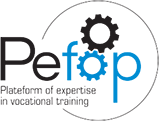In Senegal, towards a national certification for training in local languages

In Senegal, IIEP-UNESCO Dakar is involved with the Société de Développement et des Fibres Textiles (SODEFITEX), which aims to facilitate the certification at the national level of the vocational training courses it has developed in the southern part of Senegal and which are conducted in local languages.
About SODEFITEX, a company serving the territorialization of training offers
Concerned about the functional literacy of its employees, SODEFITEX set up a literacy cycle in 2003 for employees of cooperatives, farms and cotton producers working with the company to enable them to acquire skills in reading and writing and in arithmetic. Following this literacy cycle, the company then initiated, in 2011, a vocational training cycle in national languages (Pulaar, Mandingue, Wolof), with the aim of "developing new rural trades to serve family farms". However, this program has undergone several reforms, the last of which was carried out in 2014 following the company's desire to review the writing of training curricula according to the competency-based approach (CBA).
Faced with the constraints encountered in the implementation of the rewriting activities, SODEFITEX thus applied to benefit from the support of IIEP-UNESCO Dakar, which enabled the rewriting dynamic to be relaunched in 2017. In a perspective of professionalization and improvement of vocational training programs, three trades of BTP level were targeted to formalize curricula and have them recognized by national authorities. These trades are: head of cultivation; technical relay; head of operations.
In this regard, three interesting specificities of this process should be noted:
- The link maintained between the functional literacy offered and vocational training;
- The concern to take into account the language of the producers' activities in order to offer them literacy and training in the local language;
- The setting up of a training space directly at the place of activity.
It is the producers' federation that suggests training needs to SODEFITEX. It is the federation that serves as an intermediary in the communication process. In the zone, the federation has 13 unions, each composed of different groups at the village level. SODEFITEX trains about 190 learners each year.
Original training courses for the development of the cotton sector and good local governance
Several aspects of innovation are to be taken into consideration in this project:
- The territorial approach adopted for the implementation of training. The organization of the training is based on an innovative strategy supported by the company. For SODEFITEX, it is a question of optimizing the development of the company from the identification of its own training needs. The proposed training cycle is therefore first and foremost an investment in the needs of the company, which, in order to satisfy its demand, relies on the capacities of young dynamic people in the field;
- Reciprocally, the trainees are guaranteed to be able to exercise their functions within the producer organizations and farms with a professional qualification;
- Training is concentrated on specific modules, developed according to the trades, in close connection with the activities and practices of the producer groups and farms, so that they are tools for improving performance;
- The development of technical and vocational training with the use of writing, reading and calculations in national languages is an additional aspect of innovation, since the practice meets the expectations/needs of the populations.
In summary, the action is relevant to the company's clear desire to support sustainable development, through the implementation of literacy and training cycles, directly inspired by local needs.
Purpose of the technical support provided by IIEP-UNESCO Dakar
While the training courses offered by SODEFITEX are not new and are part of a long-term dynamic, the formalization of curricula, their recognition by the Ministry, and then their transcription into the local language is a new challenge for the company and this was the purpose of the support of IIEP-UNESCO Dakar. More specifically, the implementation of this support was done over two and a half years, from August 2018 to June 2021 through an action plan articulated around the following axes:
- Finalization of training curricula based on the competency-based approach (CBA);
- Official validation of the training curricula;
- Transcription into national languages of training tools and materials;
- Capitalization of the certified professional training approach.
The company chose to proceed with the transcription of the training in national languages initially with the Pulaar language (majority language spoken in the area). It could consider extending the approach to the other two national languages in the region, Wolof and Mandingue.
The implementation of the action plan was delayed by the health context related to Covid-19, which did not allow the process to be completed.

